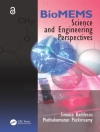This volume explores the unique challenges midwifery graduates face as they move into practice. It identifies the similarities and differences in midwifery education, regulation, and clinical practice faced by graduate midwives in all continents, examining the various support systems available for graduate midwives in many countries, and identifying the common strategies (formal and informal) and approaches that have proved to be effective in supporting midwifery graduates.
The book volume brings together the experiences of new midwives starting out in registered practice, to share the challenges and triumphs during their transition to confident practitioners.
It identifies, explains and details both established and innovative new mechanisms in place to support new midwives in each country, and examines the effects the experiences of transitioning to practice may have on future professional practice, resilience and sustainability. Lack of support duringthe new-graduate transition to practice has been associated with early attrition from the midwifery profession. Stress, disillusion, and horizontal violence have been identified as factors that influence midwifery attrition rates. Exploration of the various support mechanisms currently available in different countries may stimulate the sharing of best practices in providing new midwives with transition to practice programmes and generate further research.
Each chapter is harmonized to facilitate the comparison between countries, and the maternity services context is explained using each country’s specific legislation, regulation and registration of midwives. The preparation of midwifery students for qualified practice is outlined to explain how midwifery students are trained and socialized into the profession, mentored in their placements and then transitioned to registered midwife status.
This book appeals to midwives, managers, educators, and newly graduated interested in international midwifery practice.
İçerik tablosu
Introduction.- Chapter 1. Australia.- Chapter 2 . Belgium.- Chapter 3. Brazil.- Chapter 4. Canada.- Chapter 5. Ethiopia.- Chapter 6. Germany.- Chapter 7. Hong Kong.- Chapter 8 . Iran/Teheran.- Chapter 9. Jamaica.- Chapter 10. New Zealand.- Chapter 11. The Netherlands.- Chapter 12. United Kingdom.
Yazar hakkında
Michelle Gray has 25 years of midwifery practice experience working in a diverse range of maternity services in England and Australia; providing midwifery care to women in and out of hospital.
For the last ten years she has been a midwifery academic at the University of the Sunshine Coast where she has lead a Masters of Midwifery program 2007- 2015. More recently Michelle has coordinated the Bachelor of Midwifery program which commenced in February, 2017.
Michelle has a particular interest in midwifery regulation, registration, and standards of midwifery practice and education. This is evident in her professional engagement activities which include her professional engagement activities with the Australian College of Midwives (ACM) as Council representative for Queensland, Chair and committee member for ACM Queensland Branch; and reviewer for Elsevier articles and books. Finally, Michelle’s Ph D thesis completed in September, 2016 investigated, ‘Midwives’ responses to the changed condition for registration renewal in Australia’. Her findings have been published in Australian and International peer-reviewed journals, and she has completed many conference presentations on her findings.
Michelle’s interest in midwifery regulation, education and practice led her to undertake a six month sabbatical in Ontario, Canada, June-December 2015, where she collaborated with international midwives on the examination of the support of new midwives in practice. This focus was the initiative that led to the creation of this collaborative international book dedicated to examining the experiences of new midwives as they transition into registered practice.
Dr. Ellen Kitson-Reynolds is a Midwifery Programmes Manager and principle lecturer in the Faculty of Health Sciences, University of Southampton, UK, and a Post-doctoral Clinical academic Midwife. She has led the three year Bachelor of Science Midwifery (Honours) and Master of Science Midwifery programmes since 2011 and successfully validated a BSc and MSc 2 year midwifery (with advance standing) programme for adult nurses. Her education leadership is realized through her role as the Lead Midwife for Education in the University of Southampton and supporting students at all academic levels and clinical experiences.
Ellen’s clinical and published expertise covers clinical decision making, supporting newly qualified midwives and educational advances for pre-registration midwifery education, bladder management linked to birth and a special interest in autistic spectrum disorders linked to maternity services. Ellen’s continued clinical support is that of a professional midwifery advocate and works in partnership with clinicians to support transition to first post. This has stemmed from her Clinical doctorate thesis entitled: ‘The lived experiences of newly qualified midwives’.
Dr. Allison Cummins has completed a Ph D on Enabling New Graduate Midwives to work in Midwifery Continuity of Care Models in Australia. She currently teaches in both the undergraduate Bachelor of Midwifery and post-graduate midwifery programs at the University of Technology Sydney. Allison also supervises Ph D students in Midwifery with a special interest in women’s experience of midwifery services. She has developed teaching and learning grants, including a one-touch midwifery app for smartphones, and other online and workshop projects.
Allison is currently conducting research that aims to evaluate midwifery led care in Australia.
Allison has a number of publications from both her research and teaching and learning grants. In addition, she has co-authored a book, “Stories in Midwifery“ and contributed to textbook chapters on midwifery and maternity care.
Allison has been a practicing midwife for over 20 years working with women in home and hospital settings. She continues to work as a midwife at Sydney’s Royal Prince Alfred Hospital on a casual basis, her practice complementing her teaching role. She also provides private antenatal classes to women and their partners. She is an active member of the Australian College of Midwives and sits on its Professional Development committee.












